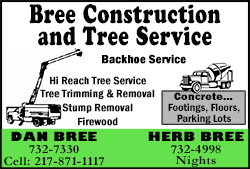 From garden hoses to hoes, rakes, shovels, weed whackers, edgers,
trimmers and lawn mowers, having a nice-looking lawn takes a few
tools. Throw some lawn furniture into the mix, and as a homeowner,
you may find that your garage just isn't big enough for you to store
your car and still be a successful gardener. From garden hoses to hoes, rakes, shovels, weed whackers, edgers,
trimmers and lawn mowers, having a nice-looking lawn takes a few
tools. Throw some lawn furniture into the mix, and as a homeowner,
you may find that your garage just isn't big enough for you to store
your car and still be a successful gardener.If this is the case,
then it might be time to consider a separate storage facility.
Garden storage is as varied as the gardener, with weatherproof
trunks and cabinets that can be placed on the patio, prefabricated
sheds that can be purchased and delivered intact, or custom-built
pottery sheds that can be designed and built to complement the
landscape and the home.
In addition to perusing the seed catalogs every spring, gardeners
many times also enjoy leafing through the latest editions of the
various home and garden magazines. In those publications, the
settings are perfect, the plants are mature, and the lowly garden
shed can be elevated to a place of class, comfort and relaxation as
well as utility. But it is important to remember that what may look
great in the book, may not fit into your landscape.

So, before you take the plunge and make that kind of cash
investment, be sure you know what it is you need.
First, consider these two things: How much space do you need, and
how much space do you have? In ratio, many times the larger lawn
requires more tools, while a smaller space requires less equipment.
If you have a large lawn, flower gardens and vegetable gardens,
then your list of equipment could include a riding mower, a push
mower, a garden tiller, trimmers, hedge clippers, rakes, hoes and
various other garden gadgets. These items can take up a lot of
space, so a shed with a wide, drive-in door might be a good solution
to your storage problems. On the other hand, if you need a large
shed, how much lawn are you going to lose, and are you willing to
make the sacrifice?
Most gardeners will tell you they have a favorite spot in their
lawn that grows perfect plants year after year. They will oftentimes
also be able to identify a place that is less than perfect due to
poor drainage, lack of sun or too much exposure to the elements. If
such a place exists in your yard, then that could be your best
starting point for deciding if you have room for a shed.
Once you have figured out how much space you need and how much
space you have, the next question then could be, what is your vision
for this space?
For some, it is simply a place to put stuff, and there's nothing
wrong with that. Prefabricated sheds could be a great answer for
that gardener. Today, sheds come in a variety of shapes, styles and
sizes, so choosing one that "fits" with your home and your landscape
should be easily done.
When looking at a prefabricated building, be sure to consider how
it is going to get onto your property. Do you have clear access to
your backyard from a street or alley? Do you have a fence around
your yard, and if so, is there a drive-thru gate? If the yard is
fenced with a gate, then — unless you plan to take the fence down to
get the shed in — the shed you buy may need to be dictated by the
size of opening it can pass through.
If this proves to be an impractical solution for you, then the
final and perhaps best answer is to design one and either hire it
built or build it yourself. A simple online search using the
keywords "garden shed" will produce hundreds of illustrations of
sheds. These include everything from simple utility designs to
ultramodern "pod" designs and even some that are slightly quirky.
There are also examples of stick-built sheds and some that
are built of stone, brick or even stucco. You can "shop" for the
style you like, the doors you like, the windows you need, and
can even create a shed with a nice little front porch for
relaxing after a day in the garden.
[to top of second column] |

For the do-it-yourselfer, a visit to The Family Handyman website
will offer a variety of sheds as well as many other do-it-yourself
projects, and the website provides free drawings of the sheds as
well as a complete list of what materials would be needed in order
to build it. You can print the list and take it to Alexander Lumber
or your favorite lumber supply and get everything you need.
(http://www.familyhandyman.com/
sheds/2010-shed)
If you prefer to have the shed built for you, there are several
great construction companies in Lincoln and Logan County, including
Bennett Builders, Brad Matthews Construction, Roger Webster
Construction and many more. These talented builders can take what
you give them and turn it into exactly what you want.
Grab a drawing or blueprint off the Internet, or sketch it out
yourself and let someone local do the work for you.
Finally, what is outside is going to be important to the overall
look of your landscape, but you should also consider what you need
inside. Knowing what you need inside depends on what you plan to do
inside the shed.
Will you be potting plants? Do you need a workbench built into
the wall? Will you be starting seeds? If so, do you want the
building insulated? Do you need extra outlets for grow lights? Do
you need overhead storage for lightweight items such as plastic
pots, seed starter kits or even your garden hoses, rakes, hoes and
shovels?
Do you have tools that need to be hung up for easy access? Would
a wall of pegboard be a good idea? You might even want to consider
if you'd prefer a separate room for your gasoline-powered equipment,
such as mowers and tillers.

And finally, give consideration to a lockable cabinet for storage
of hazardous chemicals. Your shed could very well become a favorite
spot for kids and grandkids to play around, and no one wants to see
harm come from exposure to chemicals.
So now that you have a few tips on how to get started, what's
stopping you? Grab that mouse and start your search for the perfect
garden shed for your perfect landscape!
[By NILA SMITH]
|